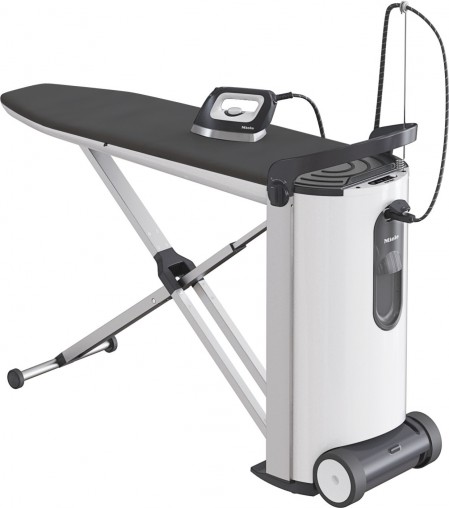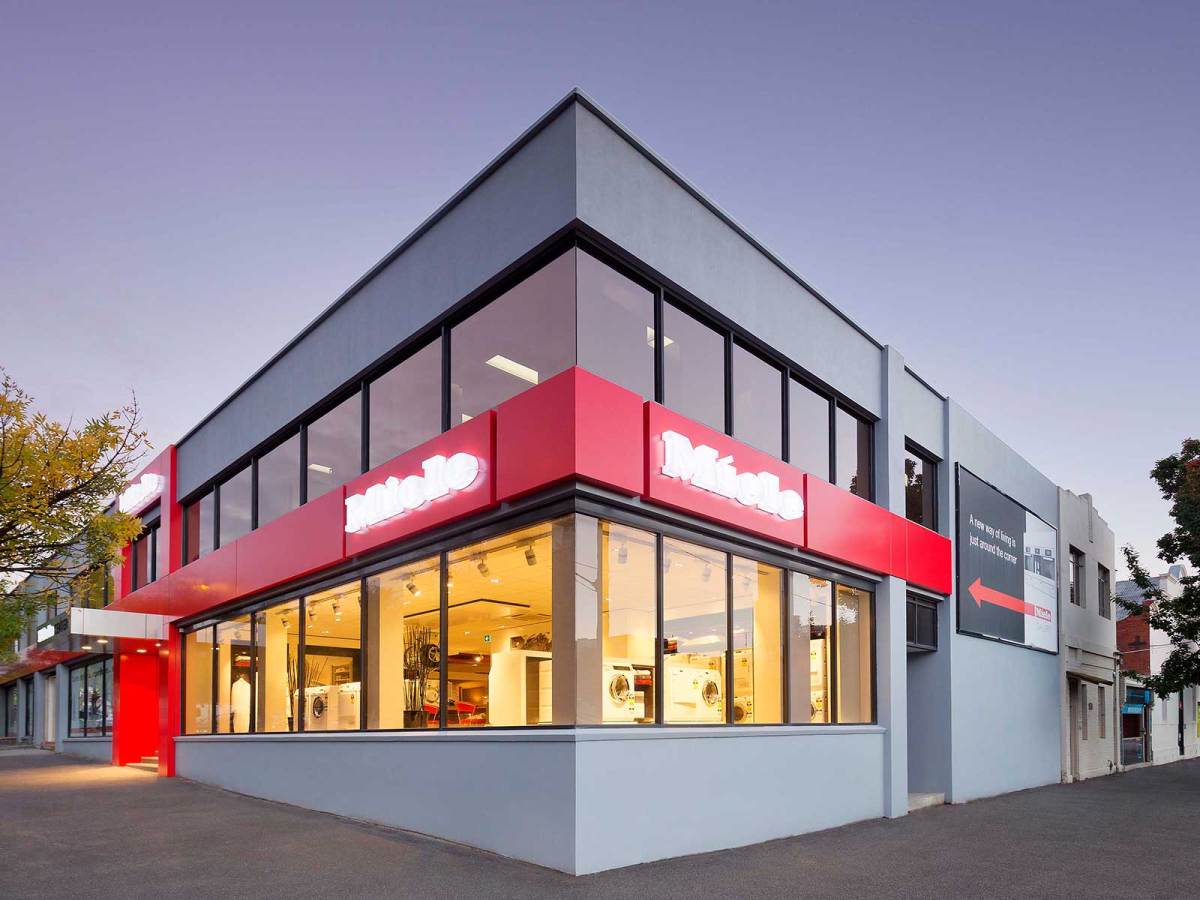
A story appeared today on a rival website accusing Miele of treating JB Home and its customers with contempt. The article, carrying the headline “JB Hi Fi Home Customers Not Good Enough For New Miele Ironing Board” (sic) says Miele has refused to allow JB Home to sell its new FashionMaster ironing system, a $2,199 steam system with integrated ironing board, which is slowly being rolled out ahead of an official launch in early 2015.
The article quotes unnamed sources suggesting the reason Miele is excluding JB Home is because “Miele don’t like the idea of Miele products being discounted” (sic).
The author recounts an argument he had with Miele product managers at a press event in northern Sydney last night. The author asked if Miele planned on selling the FashionMaster and other new appliances through JB Home stores. When Miele category manager Louise Paynter replied that Miele wasn’t sold through JB Home, the rival author said that he had seen Miele appliances in JB Home. This led to Paytner saying that only Miele appliances with comparatively lower price points are sold at the warehouse-style outlet. The rival author has then leapt to the conclusion that Miele is treating JB Home and its customers with contempt, as though they are not good enough for the most expensive ironing product ever released at retail in Australia (Update: as per the comments below, Laurastar sell more expensive models on its website).
What the rival author does not realise or understand is that Miele sells its major appliances through its Chartered Agency system. Under this system, Miele essentially sets up a concession within retail stores, such as Harvey Norman, Winning Appliances or E&S Trading, and, using Miele’s own POS system, retail staff act as agents for the German brand. When you buy a Miele refrigerator or oven or washing machine — or any other Miele major appliance — the transaction is handled directly with Miele. Even if you physically buy the product at your local Harvey Norman, the sale is still being conducted directly with Miele.
This system means that no retailers have the power to discount Miele products. All retailers offer Miele products for the same price because they are not actually retailing the products, they are simply acting as agents for Miele. This system was devised by the late Miele Australia MD Peter Murphy. He rolled it with the consent of Miele’s German head office and it has proved very successful for the company. Miele pays its Chartered Agents a commission for each sale and is able to hold up its average selling prices by controlling the purchase process from the manufacturing in Germany through until the installation at home in the suburbs.
Miele’s agency system, which is also known as ‘pro forma’ selling, has been so successful that other brands have emulated it. ASKO, AEG, De Dietrich, Gaggenau and Speed Queen are all sold through the pro forma system.
There is one major exception to Miele’s Chartered Agency system: floorcare. Miele has chosen not to sell its market-leading range of bagged vacuums through its chartered agency system, instead it wholesales its floorcare appliances to any retailer that wishes to sell it. A quick look at JB Home’s website reveals that the only Miele appliances it sells are vacuum cleaners.
If Miele were to induct JB Home into its Chartered Agency system, and Miele is known to be very judicious in choosing its agents (for example, The Good Guys is not accredited to sell Miele*), it would still be in control of the pricing, merchandising, delivery and installation of these appliances. The rival author’s blind quote that Miele is worried about discounting is absurd because there is no discounting of Miele appliances, unless Miele itself chooses to discount. Retailers have absolutely no ability to adjust the pricing of Miele major appliances, either up or down: only Miele has that power.
It should be noted that Miele’s agency system has been in place for well over a decade now and its legality under Australian law is completely confirmed. Because the retailer never actually owns the product (except for floorcare, as noted above), it is not conducting any resale price maintenance.
The system, however, isn’t perfect or without fault. Because the retail shopfront is still the consumer touchpoint, store owners have complained that if the manufacturer does a poor job in servicing the customer, the retailer will have their name damaged.
For example, imagine you purchased a Miele refrigerator at Winning Appliances. You would quite understandably assume that Winning had sold you your new appliances but, in fact, Miele has sold it to you and Winning Appliances has simply facilitated the transaction. When the Miele deliveryman comes to instal your new refrigeration, he makes a mess, is rude and chips the cabinetry when sliding the fridge into place. You naturally blame Winning Appliances for this, as that was where you purchased the product.
This is obviously hypothetical — both Miele and Winning Appliances are known for their outstanding customer service — but it serves to demonstrate that if a pro forma brand isn’t as responsible as Miele, the retailer can undeservedly have their brand damaged.
*Some time after the publication of these story, The Good Guys did become accredited to sell Miele appliances.
This author is on Twitter: @Patrickavenell
Here are some suggested articles for readers who would like to know more about this system:
Miele’s Global MD reveals chartered agency system saved Australian business
Doctors in the House: Miele owners discuss family, branding, bicycles and high prices
Winning Appliances vs Pro Forma suppliers

